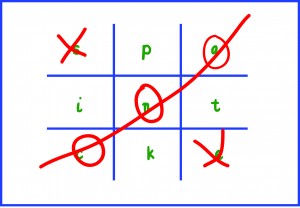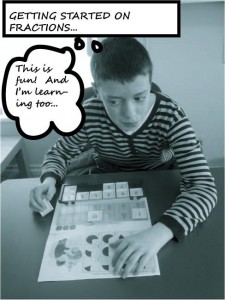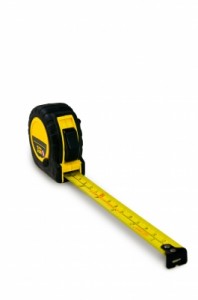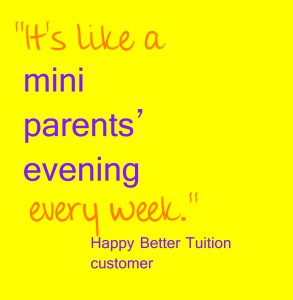The E-Reader Phenomenon
“Bury me with my Kindle,” proclaimed a good friend of mine recently, somewhat alarmingly, about an object no-one had heard of a couple of years ago.
I must confess I haven’t got a Kindle and that this blog post will be determinedly biased in favour of ‘real’, paper books. Having said that, I cannot ignore that everyone I know who has a Kindle (or other e-reader) loves it and raves about it and spends a lot of time with it – without exception.

'Real' books come in all shapes and sizes.
Paper Books are Unique
What bothers me about the Kindle is that it reduces books to just words on a screen. It goes without saying that the most important part of any book is the words, but paper books develop their own quirks and character once they have been read twice or even 20 times. You can’t indelibly underline your favourite phrases on a Kindle screen or turn down the page to mark your favourite chapter.
I love second hand books because they often bear the imprints of previous readers. From a handwritten dedication in the flyleaf to a stranger’s long-forgotten shopping list, paper books offer a glimpse into their previous life that adds something extra to your reading experience. Has a lone pressed flower ever fallen out of your Kindle unexpectedly? Thought not.
The founders of Book Crossing understand the power of the paper book.

Book crossing: follow your books on their own unique journeys.
Described as a modern-day message in a bottle, Book Crossing members can pass books along to other readers across the world, then track them on their journey through online journals and reviews. I imagine flocks of books, like migrating birds, shooting across the sky then scattering to new homes before it’s time to move on again. Jean-Paul Sartre said that to read a book is to rewrite it: Book Crossing takes that philosophy to the next level, allowing us to peek at each book’s unique journey.
There’s a kind of whimsy in the Book Crossing experience that e-readers cannot replicate.
Hunting for ‘Real’ Books is an Adventure
While shopping for e-books is a solitary, almost clinical experience, the paper bookworm’s quest for literary sustenance can lead to all manner of adventures. There are bookshops and unofficial libraries tucked away where you least expect them.

Word on the Water floating bookshop
For example, Word on the Water is a floating bookshop. Housed in a travelling barge, Word on the Water sells quality second hand books from cult classics to children’s books and a nice line in quirky, wouldn’t-have-thought-to-look-for books. They also run poetry slams, readings and live acoustic music on their roof stage. Does your Kindle have a roof stage? Thought not.
A book shop with no fixed location is reminiscent of the magical lands created by Enid Blyton or JK Rowling – but Muggles can check the whereabouts of Word on the Water on Twitter.
‘Real’ Books Bring People Together
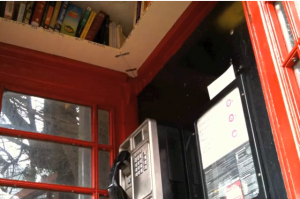
Phoneboox: a library in a disused phone box
‘Real’ books can provide a focal point for communities (hence the strength of feeling against proposed library cuts or closures) and spark social movements. James Econs saw a disused red telephone box in Horsley, Surrey and quite spontaneously set about what he describes as Socially Beneficial Creative Vandalism and what others might more prosaically describe as Turning a Phone Box into a Library. The Phoneboox gives you the opportunity to take a book you might never, ever have thought of reading and to pass on your own books for free.
Does your Kindle spout free books unexpectedly and spontaneously? Thought not.
My favourite local book exchange is at the Unicorn Grocery in Chorlton, Manchester, but you can find them all over the country.
‘Real’ books can be picked up and leafed through. An amazing piece of imagery or turn of phrase can catch your eye and ignite your interest. They can be passed on or loaned out to friends. They can be discovered in old phone boxes, down the backs of sofas or floating down theThames. Although reading is a solitary activity, paper books can bring people together in a way that e-readers never will. For this and many other reasons, I prefer ‘real’ books and I expect I always will.
Image of books: Paul / FreeDigitalPhotos.net

